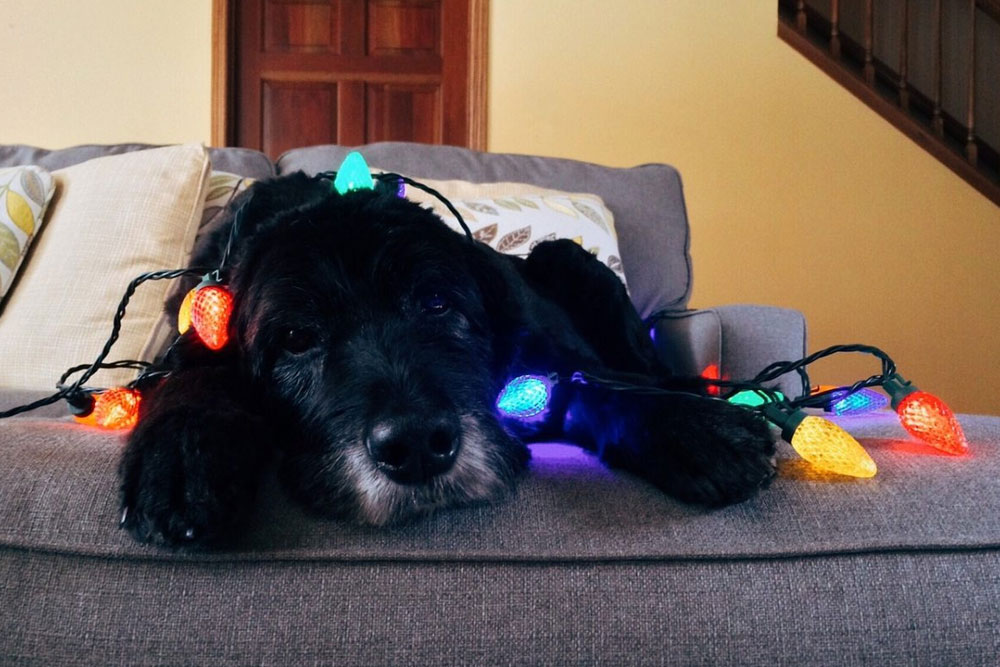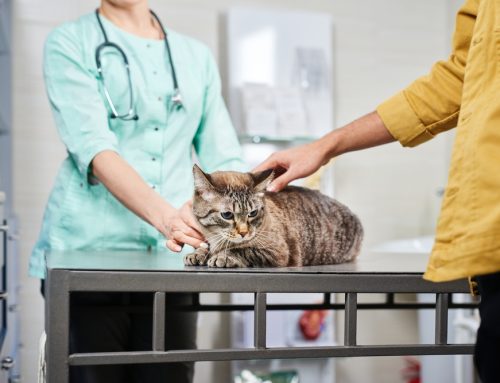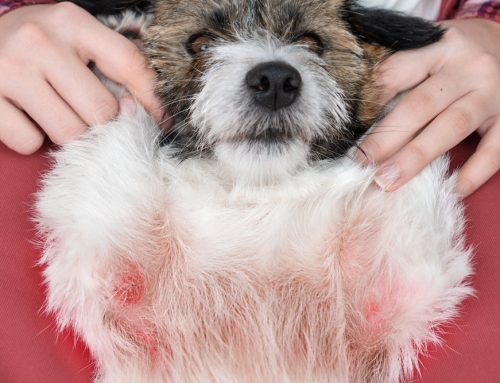With the holiday season coming into full swing, many families are busy preparing their menus for their get-togethers. Many of the foods we consume around the holidays are extremely tasty (and high in calories!) but can be harmful to our pets. Most people realize that the foods we eat around this time of year are often available at other times, but pets may be more at risk for consuming them when families have large groups of people over and food has a tendency of finding its way onto the floor. Please read on for more information on the dangers that holiday foods pose to your pets!
Gastroenteritis
Any abrupt food change in a dog or cat can potentially result in inflammation of the stomach and/or intestines (gastroenteritis), resulting in nausea, inappetence, vomiting, and/or diarrhea. While these symptoms can occur with changing their regular food, around the holiday season pets are at more risk if family members and friends feed them people food.
Pancreatitis
As mentioned with gastroenteritis, feeding pets people food can result in nausea, vomiting, diarrhea, and inappetence. In more severe cases, some dogs and cats can progress to pancreatitis, which is inflammation and possible infection of the pancreas. It is often difficult to determine the exact cause of pancreatitis in pets, but often the history involves the pet ingesting fatty foods. These pets usually have mild to severe abdominal pain, are nauseous, and may be vomiting and having diarrhea. Some cases can be mild and managed on an outpatient basis, but in some cases it can progress to severe pancreatitis that results in the need for hospitalization and treatment with IV fluids, pain medications, anti-nausea medications, and antibiotics. Avoiding people food altogether can prevent this disease.
Bones
Ingestion of bones often leads to many dogs (and sometimes cats) being presented to TMVH for treatment. Not only can bones cause gastroenteritis, pancreatitis, or even constipation (we’ve treated pets for all of these!), but they often splinter when chewed, which can result in the sharp points of the bones causing lacerations in the stomachs or intestines. The bones can also lead to punctures of these organs, resulting in leakage of stomach and intestinal contents into the abdomen and infection. While we know dogs loves to chew on bones, there are much safer options available, and we recommend speaking to your veterinarian about those options instead of giving your furry friend that rib bone or turkey wishbone!
Toxins
In addition to the problems discussed above that can occur from ingesting people food, some foods are toxic to dogs and cats.
- Chocolate: Most of you probably already have heard that chocolate is toxic. Baking chocolate, semi-sweet chocolate, and dark chocolate are the most toxic. Symptoms can include vomiting, diarrhea, hyperactivity, tremors, seizures, and potentially death.
- Raisins and Grapes: Ingestion of raisins or grapes can lead to kidney failure. The exact cause of kidney toxicity is not known, and some dogs only require a small ingestion. If untreated, the kidney failure can result in death.
- Onions and Garlic: Garlic and onions can be found in many holiday dishes, including stuffing. Ingestion of either can result in hemolytic anemia (destruction of red blood cells). If untreated animals may need blood transfusions, and severe cases can lead to death.
- These are just a few of the potential food items that can be toxic to your pets. For this reason, if your pet has ingested a food item and you are unsure if it can be toxic, we recommend contacting your vet asap just to be safe.
Food Wrappings
We all know that our holiday parties generate plenty of trash. Aluminum foil, plastic wrap, plastic bags, wax paper—all of these can be coated with remnants of our food, making them seem like delicious treats for our pets to sneak out of the trash can. Some of these items, especially depending on the size of the pet, can potentially lead to an intestinal obstruction and the need for surgery. Ensure your trash is secure so your pets do not warrant a trip to the ER!
People food any time of year can pose a threat to your pets, but veterinary hospitals often see an increase of visits related to gastrointestinal symptoms around this time of year. Play it safe and encourage those you know to do the same—when it comes to your pets, the best bet is to keep it simple and stick with the food that they are used to. For more information, contact your vet at TMVH.









Leave A Comment